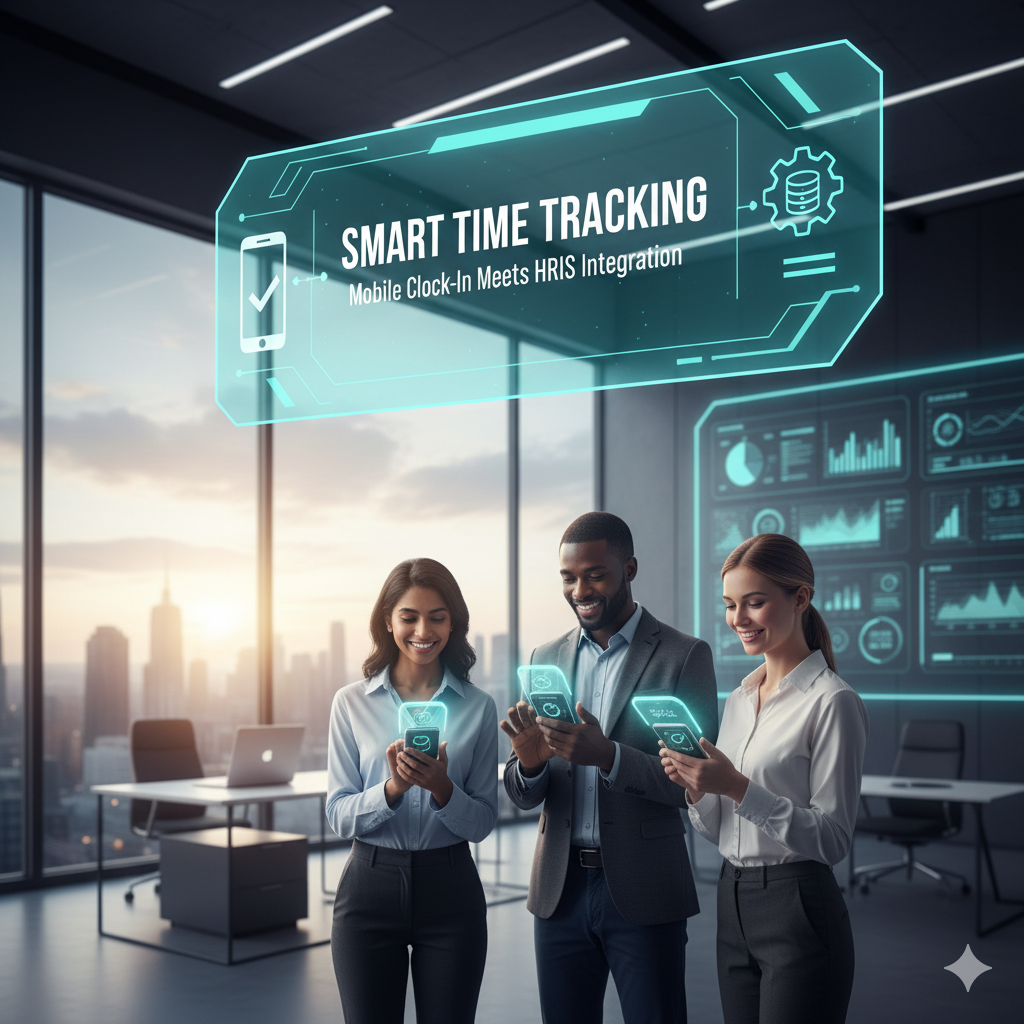Address
Kaypian, San Jose Del Monte City, Bulacan Philippines
Work Hours
Monday to Friday: 8AM - 6PM
Weekend: 10AM - 5PM
Address
Kaypian, San Jose Del Monte City, Bulacan Philippines
Work Hours
Monday to Friday: 8AM - 6PM
Weekend: 10AM - 5PM


Integrated HR. Accurate Payroll.


Integrated HR. Accurate Payroll.

In the era of digital transformation, managing employee attendance and work hours has evolved beyond paper timesheets and manual data entry. The rise of mobile clock-in systems integrated with Human Resource Information Systems (HRIS) is revolutionizing the way organizations track time — offering real-time accuracy, transparency, and efficiency.
If your business still relies on outdated timekeeping methods, it’s time to explore how smart time tracking can simplify operations, improve productivity, and enhance compliance.
Mobile clock-in systems allow employees to log their work hours directly from their smartphones or tablets — whether they’re in the office, on-site, or working remotely. When integrated with an HRIS (Human Resource Information System), these time logs are automatically stored, synced, and updated in real time.
This seamless integration means no more manual uploads, no missing timesheets, and no payroll errors. Every clock-in and clock-out is securely recorded, giving HR teams accurate and up-to-date data at their fingertips.
Accurate time tracking isn’t just about payroll — it’s the foundation of efficient workforce management. When done smartly, it ensures:
⏱️ Real-Time Visibility: Managers can monitor attendance instantly, regardless of employee location.
✅ Data Accuracy: Automated syncing reduces manual errors and duplication.
💰 Payroll Efficiency: Integrated data ensures correct salary computation every cycle.
📈 Performance Insights: HR can analyze time data to improve scheduling and workforce planning.
⚖️ Regulatory Compliance: Properly logged hours help maintain compliance with labor laws and overtime rules.
Let’s break down how this smart combination transforms HR operations:
When choosing a mobile time tracking solution with HRIS integration, look for these key features:
| Feature | Why It Matters |
| Real-time synchronization | Keeps HR data always up to date |
| GPS and geofencing | Ensures employees clock in from approved locations |
| Biometric or facial recognition | Prevents buddy punching and ensures authenticity |
| Cloud-based storage | Enables secure, scalable, and remote access |
| Analytics and reporting tools | Helps HR identify trends and improve efficiency |
A robust system not only tracks time but also delivers actionable insights to optimize workforce management.
As technology advances, AI and biometrics are pushing time tracking even further. Predictive attendance analytics, facial recognition check-ins, and location-based automation are becoming the new normal.
The future is smart, connected, and fully automated — empowering HR to focus on people, not paperwork.
Integrating mobile clock-in technology with HRIS is no longer a luxury — it’s a necessity for modern organizations seeking accuracy, efficiency, and scalability. By embracing smart time tracking, your business can eliminate timekeeping chaos, reduce administrative costs, and ensure every second of work is accounted for in real time.
It’s time to upgrade from traditional tracking methods and step into the future of seamless, mobile-enabled time management.